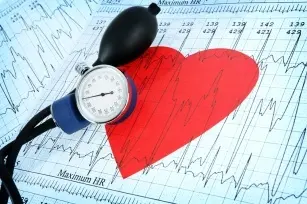
The heart beats its own rhythm. However, sometimes his work is interrupted. This is not always a cause for concern. Sometimes we are simply tired, nervous, we have drunk too much coffee or alcohol. The pace stabilizes itself and everything returns to normal. But arrhythmias can also signal heart and circulatory diseases, hyperthyroidism, magnesium, calcium or potassium deficiency, and even menopause.
The heart rhythm can be disturbed in various ways. There are disorders such as:
- Tachycardia – the heart beats too fast, but with rhythm. It is an increase in heart rate above 100 beats per minute.
- Bradycardia – the heart works too slowly, but in an even rhythm. This is when the heart rate is less than 60 beats per minute.
- Arrhythmia – irregular, irregular heartbeat. At rest, a healthy heart beats around 60-100 beats per minute. Any deviations are known as arrhythmias.
In the case of an accelerated heartbeat, we can deal with many additional contractions of the heart, causing the so-called tachycardias. Belong to them:
- Atrial fibrillation – that is, fast, chaotic work of the atrial muscle, when the heart pumps very little blood. This leads to a completely irregular work of the heart, which beats at times slowly, at other times very fast.
- Ventricular fibrillation — the most serious disorder in which, as a result of uncontrolled impulses in various parts of the ventricles, cardiac arrest and clinical death occur.
What are the symptoms of a heart rhythm disorder?
Unfortunately, the symptoms are often very mild and easy to overlook or treat as something harmless. In the case of atrial fibrillation, for example, about 30% of patients do not notice any symptoms. As a consequence, an untreated disease leads to a stroke in many patients, which is the first noticeable symptom. The noticeable signs of an arrhythmia may vary depending on the type of abnormality. The following should be mentioned here:
- short-term and recurrent choking in the chest, jerks in the heart area and the need to cough,
- shortness of breath, choking feeling, dizziness, drowsiness, coronary pains, even leading to fainting and loss of consciousness,
- fainting, trouble sleeping, stabbing and pain in the chest,
- palpitations, fluttering of the heart, interruptions in its work.
The above symptoms should be a cause for concern if they appear for no apparent reason and last more than 2,3 minutes, recurring several times a day.
If you suspect that your heart is not working normally, do not delay and see a doctor as soon as possible!It may turn out to be nothing serious, but an abnormal heartbeat is a very serious problem. If left untreated, it causes many life-threatening complications, so it should not be underestimated in any way.









